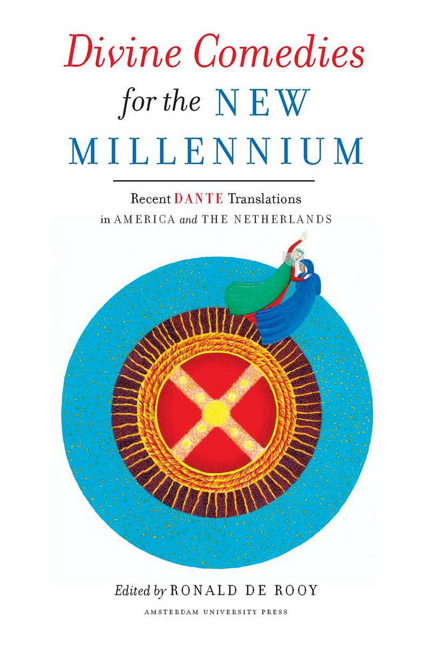Book contents
- Frontmatter
- Contents
- IntroductionDivine Comedies for the New Millennium. Humbleness and Hubris
- The Translations of Dante’s Comedy in America
- Translating Dante into English Again and Again
- ‘Getting Just a Small Part of it Right’
- The Poet Translated by American Poets. In Search of the Perfect ‘Trasmutazione Musaica’
- Ciò Che Potea La Lingua Nostra. One Hundred and More Years of Dante Translations into Dutch
- Translating Dante’s Translations
- Notes
- About the Contributors
- Selected Bibliography of American and Dutch Dante Translations
- Index of Names
- Miscellaneous Endmatter
The Translations of Dante’s Comedy in America
Published online by Cambridge University Press: 23 January 2021
- Frontmatter
- Contents
- IntroductionDivine Comedies for the New Millennium. Humbleness and Hubris
- The Translations of Dante’s Comedy in America
- Translating Dante into English Again and Again
- ‘Getting Just a Small Part of it Right’
- The Poet Translated by American Poets. In Search of the Perfect ‘Trasmutazione Musaica’
- Ciò Che Potea La Lingua Nostra. One Hundred and More Years of Dante Translations into Dutch
- Translating Dante’s Translations
- Notes
- About the Contributors
- Selected Bibliography of American and Dutch Dante Translations
- Index of Names
- Miscellaneous Endmatter
Summary
Dante's popularity in the Anglo-American world is so wide-reaching that it has become a topic of research in itself. Perhaps anyone who has just touched upon this topic is familiar with the work of Angelina La Piana, William De Sua, and Gilbert F. Cunningham, the most extensive and exhaustive of them all. These works are indispensable and yet somewhat outdated since the most recent of them is now almost forty years old, and in these last four decades there has been a remarkable number of new translations and new experiments, and a great deal of theoretical work on translating has been done, too.
Cunningham's tables tell us that the translations of the Comedy in English (including those of just one cantica or a set of cantos) up to 1965 number 85, of which 22 are American. Perhaps today the total number of translations into English has exceeded 100, considering that hardly a luster passes without producing one or two new translations of the Comedy. This number would be considerably higher if we were to count the translations of Dante's minor works as well. Unfortunately, what is lacking is a comprehensive study that covers these last decades, and we certainly do not intend to fill this lacuna. Space does not allow us to do so. Lack of specific competence on my part advises me not to attempt it. The occasion is not the appropriate one either, since I have been invited to give a rapid overview of the English translations in order to establish a reasonable basis of comparison for the Dutch translations that are being discussed at this conference.
I will give a succinct survey just of the American translations, beginning with the first one from 1843 (the first one done in the UK dates from 1782) and ending with the ones of this last luster. However, I will dwell longer on the translations that appeared in the last half century, in part because, as I just mentioned, this is the period that scholars working on this subject have not covered. The reason for going that far back is that some of the earliest translations continue to be a model for today's translators. Moreover, such a long overview can be particularly useful for appreciating the quality and the level of experimentation attained by any new translation.
- Type
- Chapter
- Information
- Divine Comedies for the New MillenniumRecent Dante Translations in America and the Netherlands, pp. 23 - 42Publisher: Amsterdam University PressPrint publication year: 2003



